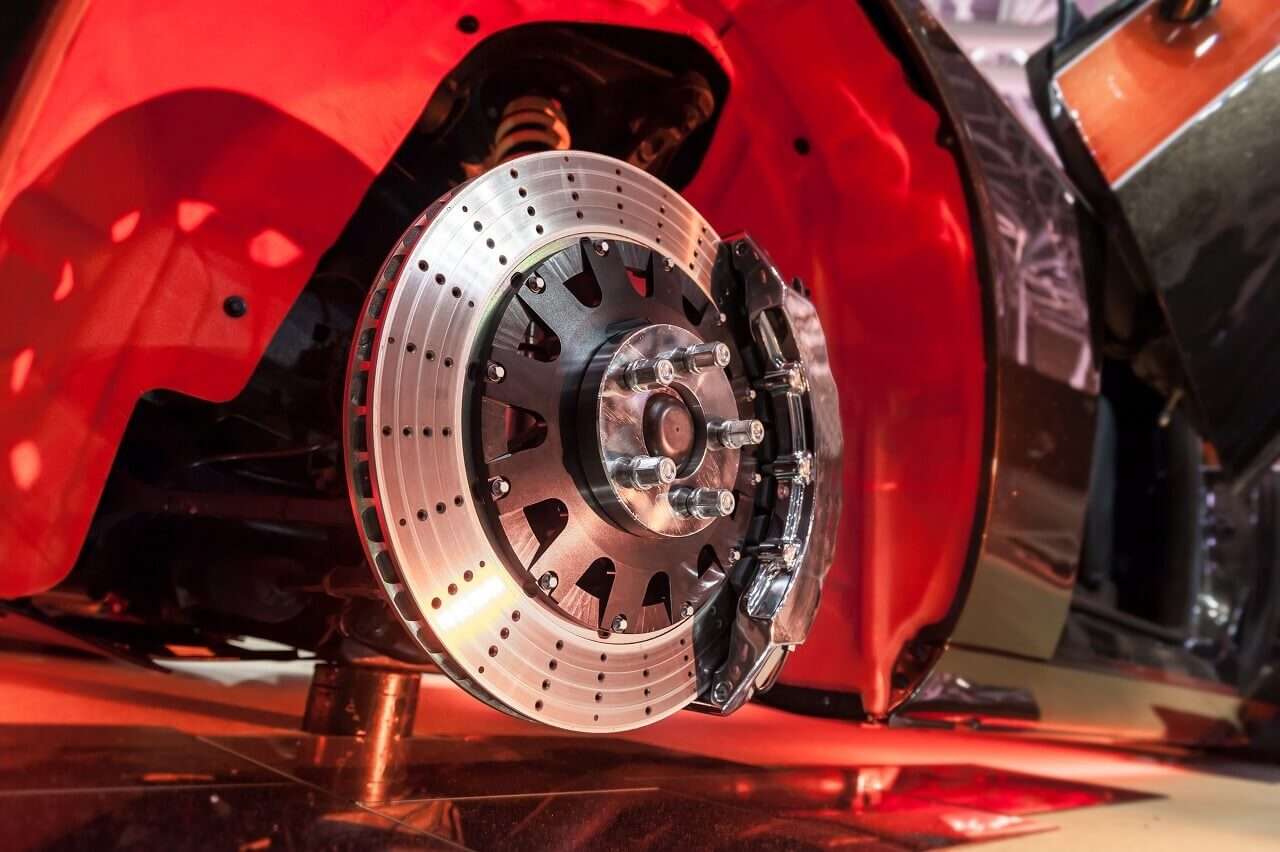Whether you’re driving down the highway or sitting in traffic, your brakes are probably one of the most important parts of your vehicle. But what do you do if you start noticing some shaking or shuddering when you slow down?
We see the most common question is, “Why Does My Car Shake When I Brake?” Though it may seem a little unnerving at first, a few things could be causing this, though not all of them indicate a serious problem. We’ve compiled an easy-to-follow list of common problems and their solutions below.
If you’re driving around, and you feel your car shaking when you brake, there are a few different things that could be causing it — from the brakes, all the way down to your wheels. We’re going to explain them here.
10 Reasons for Car Shaking When You apply Brake
There are many reasons why you may feel your car shake when you brake. So, we’ve made a list of the most common issues with their corresponding fixes.
-
Your Brake Pads Are Worn Out
Your brake pads are what grab onto the rotor when you press down on the brake pedal, slowing your car down. When they get too worn out, their grip becomes weaker. This means that it takes more force to slow the vehicle down – and this extra bit of force may make your car shake while you’re braking. You should replace your brake pads when they reach a certain amount of wear, as indicated by the limit built into your car’s dashboard.
-
Your Brake Rotors Need to Be Turned
If the brake pads aren’t grabbing onto your rotors hard enough, it may be because your entire brake system needs a bit of maintenance. Sometimes, especially after extensive use, your brake rotors can warp and become bent out of shape. If this happens, it will be difficult for your brakes to grab on without shaking the car around a little bit. To fix this problem, you will need to have the rotors turned, which is a process in which an experienced mechanic will grind off any imperfections on the rotor.
-
Your Wheels Are Out-of-Alignment
If your car shakes when braking but doesn’t do so while you’re driving it normally or going over bumps, you may have wheels that are out of alignment. This is a really easy problem to fix, provided you find an experienced mechanic with the right equipment – your car will be shaking because it’s pulling to one side or another each time you hit the brake pedal. A quick alignment job should alleviate this issue.
-
Your Brake Lines Are Damaged
Sometimes when your brakes are used extensively, you may end up with some problems in the brake line itself. Rusted or corroded lines can cause the brakes to work less effectively than normal, which will result in a noticeable shake when braking. Replacing them is something that an auto shop should be able to do for you without any problem – and you’ll end up feeling safer behind the wheel as a result.
-
Your Rotors Are Worn Out
Rotors are the discs that your brake pads grab onto to slow the vehicle down. As these discs are used, they wear down and have to be replaced for your brakes to operate normally. If you think your rotors need replacing, you may want to look into a brake rotor replacement kit instead of having an auto shop perform the work on your car – it’s less expensive than taking it to a repair shop, and it’s a job that an experienced DIYer should be able to handle.
-
Your Brake Lines Are Leaking
If your brake lines are leaking fluid, they may be damaging the rotors themselves. This is another problem that can result in shaking while braking – but like rusted or corroded lines, brake line leaks are an easy thing for an experienced auto shop to fix.
-
Your Brake Fluid Is Low
If your brake fluid levels are low, you can lose the ability to slow down in a pinch – and if you’re braking while this happens, you may experience car shaking as a result of this lack of fluid. Be sure to keep a close eye on your brake fluid levels and be sure to have them topped off if they get too low.
-
Damaged axle shaft
A damaged axle shaft can also cause shaking when you try to brake. Since the axle makes the car go from side to side and in turn can affect braking it is not uncommon for the axle shaft to wear out and cause shaking problems. Worn-out axle shafts need to be replaced to prevent a car from shaking while being braked.
-
Damaged CV joints
Damaged CV joints can also result in shaking of your car when you try to break it hard or suddenly hit the brakes, as well as poor acceleration, which can cause shaking as the vehicle slows down, culminating in a wheel wobble during braking.
-
Loose lug nuts
One of the major causes of a shuddering brake is loose lug nuts. If not tightened properly, car wheels can come loose and then make the vehicle shake while braking. Having these lug nuts checked periodically is a good way to avoid problems with your wheels and brakes later on.
FAQ’s
1. How do I stop my car shaking when I brake?
Could your tires be the cause of that unsettling shake-up when you brake? It’s worth checking out – especially if it happens at higher speeds or on a downhill slope. Start by getting an alignment and balancing service for each tire to make sure they’re set up correctly; this may help settle any vibrations from braking hard.
2. Why does my front end shake when I brake?
As you drive, have you noticed a shaking sensation when applying your brakes? This is usually an indication of rotors in need of attention. Rotors are the discs that brake pad clamps wrap around and over time they can become warped or develop imperfections on their surface which causes this vibration.
3. Will alignment stop shaking car?
A misaligned vehicle can cause tires to wear unevenly and result in a shaking or vibrating sensation. Fortunately, there is an easy way to diagnose this issue: take a look at the tire’s tread. If one side of your car has significantly more worn patches than the other, it may be time for what’s known as “wheel alignment” – giving all four wheels are evenly set direction so you won’t feel those bumps again any time soon.
4. Can low brake fluid cause shaking?
If your car’s brakes start to vibrate when you slow down, it could be a sign of low brake fluid. Don’t wait around until the situation worsens – head to an automotive shop for expert advice immediately. Not addressing this issue early can lead to serious damage and potential danger for both yourself and your vehicle.
Conclusion why does my car shake when I brake
There are several reasons why your car may be shaking when you brake, but a little investigation into the problem should be enough to get the process started towards a solution.
Hopefully, this article will help you to decide “What’s causing your car to shake while braking”. If you have any questions or ideas for other information that you would like to see in future articles on this website, please feel free to send me an email.

My name is Tom Harris, founder of this blog. I’m a mechanical engineer with 20 years of experience in the automotive industry. I’m here to help you with your vehicle’s problems, easy fixes and share my insights and experience so that you can enjoy your rides more.

